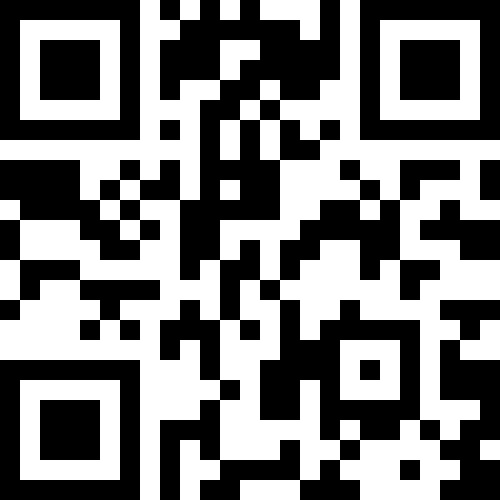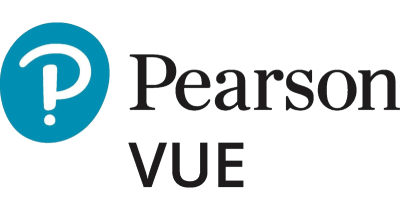Figuring out how to crack an interview can feel like a daunting challenge. Whether you’re a recent graduate or a seasoned professional, the question of how to crack the interview is always top of mind. This ultimate guide is your roadmap to cracking interviews with confidence. We’ll show you how to crack an interview by mastering common questions, presenting yourself effectively, and leaving a lasting impression. Our goal is to turn you into a true interview cracker. Understanding how to crack a interview is about strategy, not luck. For those looking to build unshakable confidence and communication skills, our Personality Development Classes Pune provide the essential training to help you crack the interview and land your dream job.
From Preparation to Performance: Mastering the Art of Cracking Interviews
Table of Contents
- How to attend the interview over the phone?
- How to attend the interview over the zoom call?
- What if they ask your expectations?
- What if they ask “Are you ready to work till late evening, because we have a client in a different time zone”
- What if they ask you irrelevant Questions?
- How to justify your knowledge with the existing training you have been taken?
- How to become more relevant among all the candidates who appear in the interview?
- What are myths about the interviewer?
- What are the facts about the interviewer?
- What fails?
- Who succeeds during an interview?
How to attend the interview through our phone?
Although interviews over the phones were not ultimately practised by the organizations before the outbreak of the COVID-19 pandemic, organizations are now paving their way towards telephonic interviews. Coming to the answer to the question, one can attend interviews over the phone effectively by keeping in mind the following things.
- Firstly, always greet the interviewer.
- Keep your resume right in front of you on your laptop
- You should receive your recruiters call in just one go. If you missed the call, immediately call back and apologize for it. You may ask them for the next available timeslot when you can attend the interview over the phone
- Since the interview is telephonic, make sure your answers are short, crisp, very precise, and to the point. For this, you need your answers to be written in one-liner format. With 3RI training from the first day itself, we ask the candidates to make short notes or one-liners. This will help them to answer more relevant and up to the mark during your interview with clients.
- Study the company’s official website and description of the job. The interviewer should appreciate your “knowledge” about the company’s products and services.
- Do not use fillers. While answering, your voice should be prominent and confident to deliver trust to the interviewer.
- Be professional while talking to the Interviewer. You should always answer precisely in full sentences, not in words. Do not have a casual approach unless the interviewer asks you to do so.
- If at all you are unaware of the answer to the question asked, do not remain silent. You should always ask for their pardon and request to go ahead with the next question. You may say I didn’t go through this concept earlier, but if given a chance I can learn and perform on it.
How to attend the interview over the zoom call?
Here is a list of few things to be kept in mind before attending a zoom interview:
- Sit up straight.
- Greet the interviewer considering the time.
- Be professionally dressed.
- Be prepared to interact, if there will be one or more people, you should know how to greet and talk to them. You should know how to interrupt someone for keeping your point, how to stay quiet when someone is keeping their point of view. Make sure you always use the right kind words and full sentences instead of “yes”, ”no”, “Ummm”, etc.
- You should be quick to answer. Also, talk about your previous and ongoing projects. You can also brief them about your past job profiles.
- Attend the interview from a quiet space. There should not be any noise from your side, which will attract the interviewer’s attention.
- Use the mute button frequently to make sure no disturbance occurs from your side while the interviewer is questioning you.
- Look into the camera while speaking. Establish a connection with the interviewer by looking at his eyes directly. This transfers trust and confidence.
- Choose a professional background, as a simple solid colour background – preferably blue or green.
- The room light should be enough for seeing any object including your face.
- Keep the phone in silent mode.
- Maintain your focus.
- Always use a laptop or computer.
- Turn off all notifications on your laptop for the time you are sharing your screen.
- Ensure your laptop is charged.
- Check your Internet connection beforehand. Keep your mobile hotspot ready in case of any network failure.
What if they ask your expectations?
This is a kind of interview question that is asked by every other hiring manager mostly during the last round. It can be answered diplomatically by saying you are flexible. You can offer them a range, talk about your prior package and experience. Highlight your skills, and always be available to negotiate.
One of the examples to answer a similar question is given below:
I’m open to talking about what you believe is a fair salary for this position in your organization. However, considering my knowledge in the industry, my prior salary, and my understanding of this geographic area of the organization, I would expect a salary ranging from XX to XX. But yes, I’m open to discussing these numbers with you. Do not ask for a salary of more than 30%, unless you already have another offer in hand.
What if they ask “Are you ready to work till late evening, because we have a client in a different time zone”
As this industry mainly works on providing services to customers and we need to always keep the client as our top-most priority. I will be available according to the services that are essentially required and cannot be avoided.
You can quickly answer such questions saying that.
If in case there is an emergency or an urgent need at work, I’ll wait up till late evenings. The company’s growth & success is a part of my growth.
What if they ask you an Irrelevant Question?
Here are some top ways to sidestep irrelevant questions asked in the interviews.
- Don’t remain quiet. You should try understanding the intent by which the interviewer might have asked you this type of question.
- Try to convince them in a very polite way that this question is not relevant to the interview.
How to justify your knowledge with the existing training you have been taken?
It is very much significant for every candidate to keep up with their knowledge and learning that was gained by them during their training with 3RI. To make sure that your knowledge is justified at the time of the interview one must keep in mind the following things:
- Firstly, the training must be taken from a Renowned Professional Training Institute and which has a soundtrack record and expert knowledge about the courses they are offering.
- Never miss to work out on your “One-Liner Concept” notebook.
- Make sure practical and theoretical knowledge is balanced and both aspects are given an equal amount of importance while selecting the right institute.
- Keep yourself updated with the current technology trends so that you are aware of current industry trends.
- Focus on sitting silently and try to absorb everything in your project in terms of applications of the technology you are learning. The examples you are giving for any concepts should be very accurate and impressive.
- Make sure you apply your training knowledge only wherever it is necessary.
- The technical training you are taking should be so integrated with the functionality of the project, it is the Mantra of success.
- The moment you start justifying the learned technology skills in your current project’s roles and responsibilities, your work is half done.
How to become more relevant among all the candidates who appear in the interview?
Interview skills are something that is learned. There is absolutely no second chance you will get to make an outstanding first impression. Here are some of the best tips that will teach you about how to answer the interview questions and convince the recruiter that you are the best fit for this job:
- Study and follow the company dress code.
- Greet your interviewer and ask them about their day so far.
- Practice good nonverbal communication.
- Listen to your interviewer.
- Don’t talk too much or irrelevant.
- Don’t be overfriendly and maintain professionalism.
- Use appropriate language.
- Ask questions wherever necessary.
- Your global certifications, your corporate etiquettes, your excellent communication skills, and a smile on your face will shine your way out among other candidates.
What are myths about the interviewer?
An interview is always the cornerstone of the complete recruiting process. It is quite natural that over time, there have been several myths flashing around like, What will happen during the interview, What will not happen during the interview, and so on. While there are several myths listed on Google, combining through them all are some of the myths listed below that are still believed by recruiters and candidates that might probably impact your next hire.
- Myth: Interviewers’ questions are usually tricky to confuse you.
Fact: In today’s scenario the interviewer is a team lead who comes and asks you more technical stuff as compared to playing around with a puzzle or mind game.
- Myth: The person with the highest qualification always gets the job.
Fact: The most practical and relevant candidate for the job description person will get the job.
- Myth: You can never be late.
Fact: It’s not a good habit to reach late anywhere. But if it is a genuine reason you can convey this with apologies to the interviewer, ultimately they are also humans.
- Myth: You must always dress to impress.
Fact: Dressing up to the mark makes sense. Ultimately it is the professionalism, your corporate etiquettes, and last but not least your knowledge that will take you to the next level of your success.
- Myth: The interviewer will always know if candidates are telling the truth or not.
Fact: Till the time your technical knowledge is to the mark, you are the right candidate for the interviewer.
- Myth: The interviewer will always be prepared.
Fact: Sometimes it is correct sometimes not. However, the interviewee should have no option other than being prepared.
- Myth: A briefly written resume is sufficient to bag that job
Fact: The resume represents you in your absence, and when you are presently available you should replicate what is written in the resume. You should sound the same as what is written in the resume.
- Myth: You should ask your questions only when the interview finishes.
Fact: Once given a chance by the interviewer to ask anything, you should always ask the questions related to work and your profile.
Want to Upskill to get ahead in your career? Check out the Job Oriented Courses.
What are the facts about the interviewer?
You must be probably wondering about what exactly does an interviewer looks for during an interview. You must be thinking if you could have some magical powers that will get them to like you. Here are some facts about the interviewer that every candidate should know while preparing for an interview:
- They want to see whether you’ve done your research or not.
- They want to observe how you react during and after the interview.
- They want to know that you want this job for career growth and better work. They don’t want that you are driven for this job just for monetary gains.
- They wonder how your knowledge, skills, and work ethic connect with the company as a whole.
- They want to know your greatest weakness that can be a hindrance to the companies growth.
- They also want to know your strengths that can work well for the company.
What fails?
The candidates who reflect on the following things will fail during an interview and hamper their careers.
- Not prepared to face an interview is a reason for failure among 75% of the candidates. The reason for these few questions was out of expectations for them.
- Lack of clarity for the job profile that you have appeared for.
- Casual and unprofessional answers.
- Displaying a negative attitude.
- Vague and dishonest answers.
- Lack of enthusiasm and positivity, and no zeal to get this job.
If you are looking for a career coach who can solve your career-related queries kindly visit – Best Career Counseling
Who succeeds during an interview?
Keep reminding yourself of the below action points to succeed in the interviews.
- Do your research and have clarity about your Career Goal.
- Gather your questions and their best possible answers.
- Prepare stories to tell, everyone would like to listen to stories. If you want to showcase your problem-solving skills you can tell the issue that you faced in your previous company in a story format. Then tell them how tactically you have achieved the resolution for the issue.
- Follow formal attire.
- Respect the schedule and be there on or before time.
- Be real, do not fake too much that people recognize you.
- Stay positive and keep smiling, throughout the interview.
- Watch if your body language is appropriate.
- Note down the important information with permission.
- Build a rapport with your interviewer.
- Lastly, remember to follow up.
If you are looking for job-oriented courses that can help you to grab an opportunity to make your career brighter do check out the courses on 3RI Technologies.





